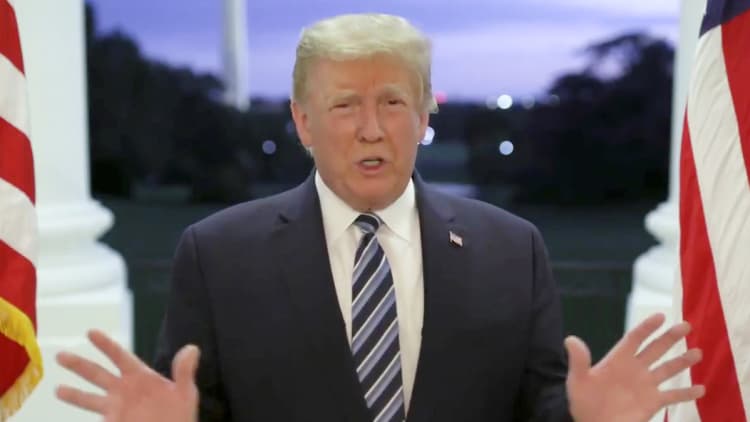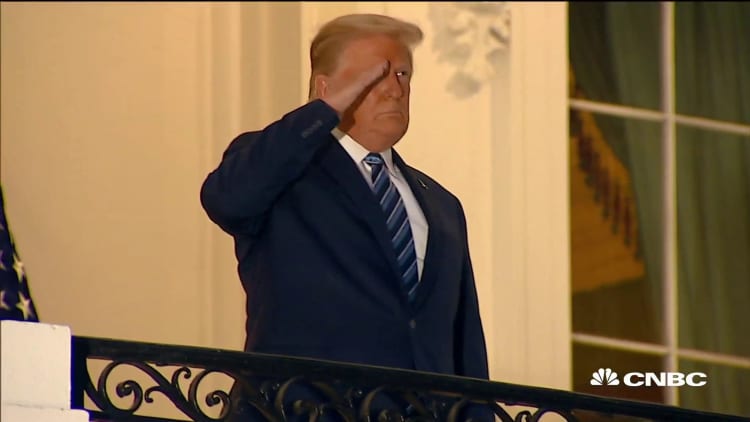
President Donald Trump returned to the White House despite still being infected — a move analysts say could draw backlash and shows he doesn't take the virus seriously.
Shortly before his departure from the hospital Monday night, Trump said he planned to promptly return to the campaign trail, where he has less than a month left to fight for a second term in office.
"I think he really faces the possibility of a backlash if that's what he does. We have 209,000 Americans who have died," said Todd Eberly, a professor of political science at St. Mary's College of Maryland.
"I think the smarter choice for him would be to come out and say: 'You know I now clearly understand the seriousness of it,' and try to win over some folks showing a little bit more empathy which is something that he's not known for," Eberly told CNBC.
A growing number of officials in Trump's administration have tested positive for the virus since the president announced early Friday that he was infected.
Earlier Monday, White House press secretary Kayleigh McEnany announced that she had tested positive for Covid-19, as did two of her deputies. At least 18 people — who were either in the White House, or connected to Trump's reelection campaign, or attended recent White House events — have tested positive recently.

"The president's campaign is going to be severely handicapped even if he's back in the office for the next couple of weeks," said Mark Jolley, strategist at CCB International Securities. "He's missing some key staff, and half of his staff inside his campaign is going to be quarantined."
"He's not going to be able to hit the campaign trail, I would think, for a week or two weeks. So, he's missing two weeks in the crucial final month in the lead-up to the election," Jolley told CNBC's "Squawk Box Asia."
"So I think, politically, it favors Mr. Biden very strongly," he added.
Trump checked into the Walter Reed National Military Medical Center on Friday for treatment after announcing he had contracted the coronavirus. Just three days later on Monday, he left the hospital to return to the White House.
If once again he returns to those large rallies surrounded by people largely unmasked, that would certainly send a signal that he continues to underestimate the seriousness of this virus.Todd Eberlyprofessor of political science at St. Mary's College
The president's treatment will continue at the White House, his doctors said.
The White House assured Americans that it was "taking every precaution necessary" to protect the president, his family and staff.
"President Trump will continue to receive around-the-clock medical care," the White House said in a statement, adding that physical access to Trump will be "significantly limited" and appropriate personal protective gear will be worn when near him.

Trump has also been criticized by health experts for making a drive-by appearance in front of a group of his supporters outside the hospital on Sunday. Health professionals noted that the president, who is possibly still contagious, may have put Secret Service members who were in the car with him at risk.
"I'm curious to see how long until he resumes campaigning, and if once again he returns to those large rallies surrounded by people largely unmasked, that would certainly send a signal that he continues to underestimate the seriousness of this virus," said Eberly.
— CNBC's Kevin Breuninger contributed to this story.


